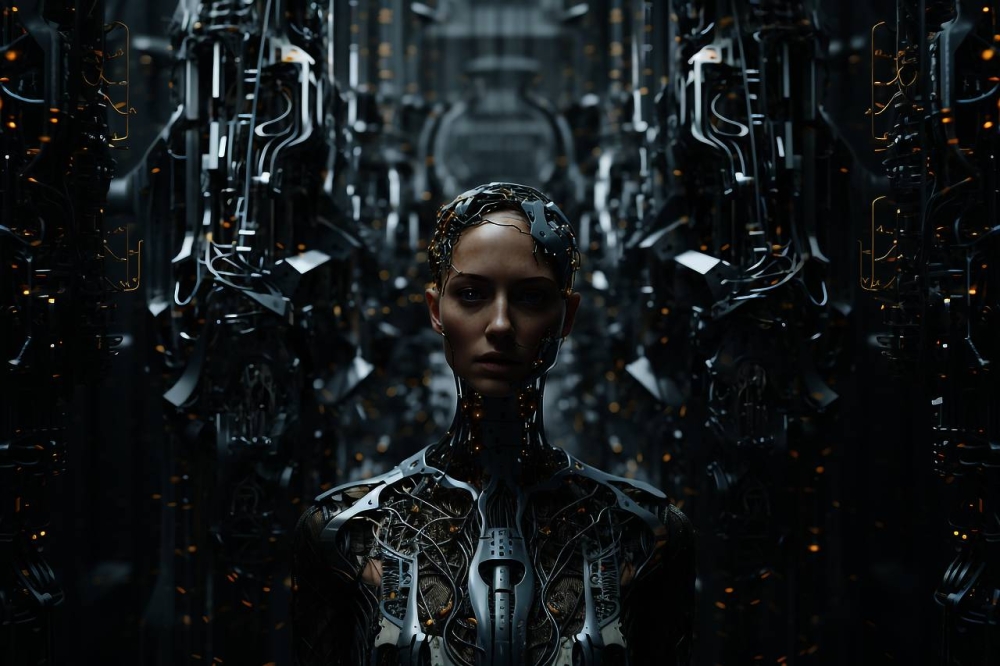Artificial Intelligence: Yay or Nay?
NIK LUQMAN WAN ZAINODDIN
Until recently, Artificial Intelligence or AI has become a diffuse technology and is the buzzword of today’s conversation.
Across the globe, all conversations could not escape the inevitable question of how AI would disrupt jobs, education, health care, technology, and even politics, among others.
To be sure, the concept of AI – an intelligence that involves a vast amount of computing power - is not that recent.
But it stunned the world when the AI-powered Chat GPT was launched late last year.
The chatbot was reported to beat 90 per cent of lawyers trying to pass the bar and is recognised to be able to hold human-like conversations.
Moreover, its ability includes writing computer code, examination papers, and even Shakespeare’s poems.
Indeed, the world is both fascinated and frightened by this development.
The fact is, while cutting-edge AI indicates our advancement, it is also seen as a “double-edged sword” as it may eventually threaten humanity.
For one, some of the important jobs in the world are potentially lost to AI, with businesses opting for automation for their operations to maximize profits.
Also, among the concerns would be primarily the misuse of artificial intelligence.
Indeed, the risks are real with floods of disinformation, in which malicious actors use AI to serve their interests.
For instance, what if artificial intelligence is utilised to manufacture illicit weapons, which would pose a potential global peace and security crisis?
This also includes deep fakes generated by AI, which is exploited for manipulation purposes.
Within this framework, what is the scenario should lots of disinformation fueled by AI?
Professor Geoffrey Hinton, often touted as the ‘godfather’ of AI, warned that it would be hard to control artificial intelligence once it becomes more intelligent than humans.
Interestingly, computer scientists are trying to model artificial intelligence mirroring the human brain.
In what is called an artificial neural network, the AI is trained to recognise objects and images, as well as speeches.
Its ability also includes predicting the next word in a sentence.
Back in the day, the AI’s ability was rather limited. But its technology now has reached leaps and bounds.
While conventional impacts of artificial intelligence on humanity would be limited to certain jobs seen as endangered, disinformation is driven by deepfake, still, Professor Hinton’s research experience suggests otherwise.
The algorithm that AI possesses now has empowered the computer to learn instantaneously and will outsmart humans soon.
This is where regulations come into the picture.
In any case, the European Union (EU)’s model may be referred to as a template. Just last month, the EU successfully passed a landmark AI regulation bill as a means of guardrail.
This is one of the critical steps putting the bloc to formally adopting the world’s first significant rules regulating AI technology.
To be sure, the AI Act was first proposed in 2021. But only after the Chat GPT was released, the negotiations on the bill accelerated.
Generally, the AI Act sets regulations emphasizing greater privacy standards, stricter transparency laws and fines imposed should failure to adhere.
Under the act, it categorises artificial intelligence technology into four levels of risk - ranging from minimal to unacceptable.
It would be immediately banned for AI technology that falls under the unacceptable category, such as systems that can judge people based on behavior, otherwise known as “social scoring,” and possess predictive nature.
And other AI technology focusing on children and other marginalized and vulnerable segments of societies would be facing stricter scrutiny.
Failure to cooperate, the EU member states could impose fines of up to $33 million or approximately 6 per cent of the company’s annual global revenue.
Indeed, this could be translated into billions of dollars for global tech giants.
While at the world body’s level, the United Nations Security Council (UNSC) just held its first-ever formal discussion on artificial intelligence last week.
This indicates that the international community is concerned about the implications of the emerging AI technology, with discussion centered on efforts to mitigate the dangers of AI, which could reshape the global economy and alter the international security landscape across the globe.
In the words of the UN Secretary-General Antonio Guterres - artificial intelligence has its fair share of “good and evil”.
While acknowledging that AI technology is forecasted to contribute between $10 and $15 trillion dollars to the global economy by 2030, he cautioned that AI could possibly cause “potentially catastrophic and existential risks lie ahead,”.
Another recommendation that is worth considering that will also strengthen multilateral cooperation is through an international observatory.
As suggested by various pundits, a means for keeping up with artificial intelligence’s swift changes is to model after the Intergovernmental Panel on Climate Change (IPCC).
“Set up in 1988 by the United Nations with member countries from around the world, the IPCC provides governments with scientific information and pooled judgment of potential scenarios to guide the development of climate policies”.
The establishment of the international observatory on artificial intelligence, if formed, would provide a platform for AI’s experts to provide data, models, and interpretations for governments worldwide to guide policy and broader decision-making about AI.
For now, it is important to increase awareness on both the risks and opportunities around AI. Doing so would tilt the favor to humanity, where AI is utilised for the greater good. However, failing to do so, it would be catastrophic and we are risking being replaced by the technology, eventually.
Nik Luqman is an analyst and writer focused on Southeast Asia. Currently, he is attached to the Institute of Malaysian and International Studies, National University of Malaysia, as an Associate Fellow.
The views expressed in this article are the author's own and do not necessarily reflect those of Sinar Daily.














